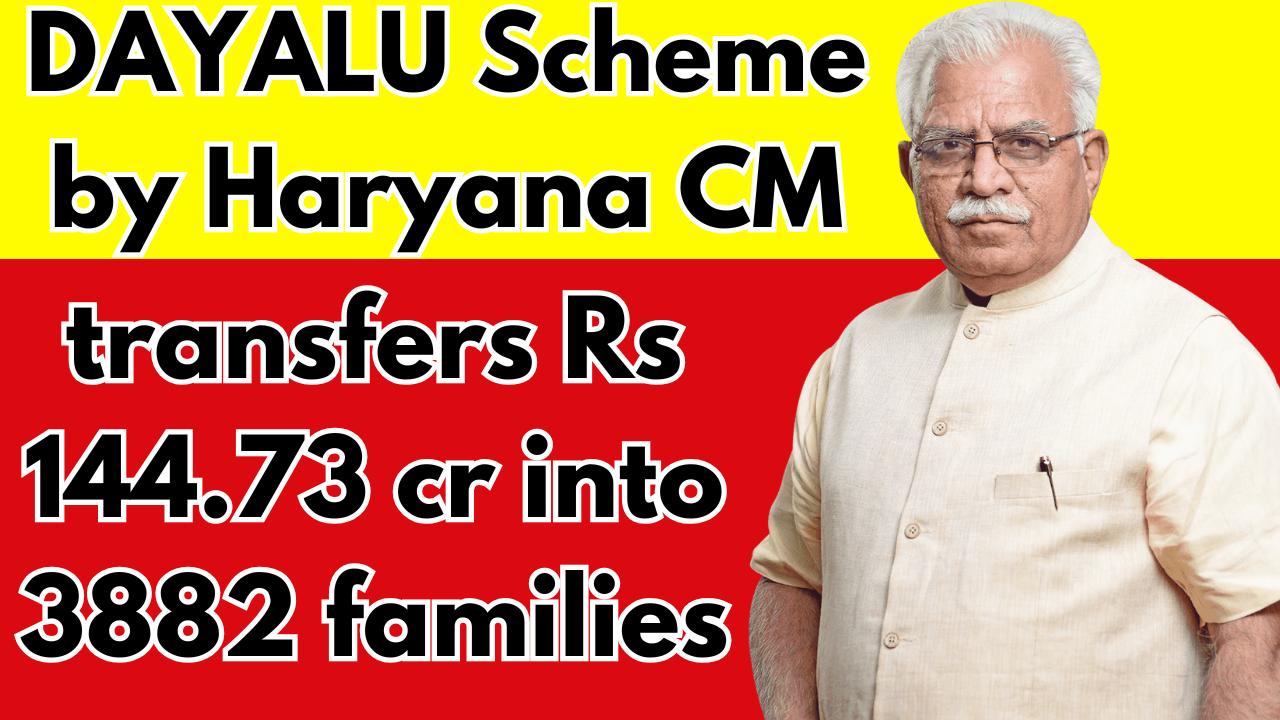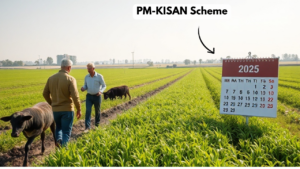In a significant move to empower families in need, Haryana Chief Minister Manohar Lal Khattar recently transferred Rs 144.73 crore directly into the accounts of 3,882 families under the ambitious DAYALU (Dr. Ambedkar Yojana for Adarsh Gram Unnati and Livelihood Upliftment) scheme. This initiative reflects the government’s commitment to providing targeted financial assistance and uplifting the socio-economic conditions of the underprivileged.
The DAYALU Scheme: A Beacon of Hope
The DAYALU scheme, introduced by the Haryana government, is aimed at offering direct financial aid to families facing acute financial challenges. By focusing on the most vulnerable segments of society, the scheme ensures that resources reach those who need them most. This direct transfer eliminates intermediaries, ensuring transparency and reducing the potential for corruption.
Designed to empower families by providing immediate relief and enabling long-term economic stability, the DAYALU scheme aligns with Haryana’s broader goals of inclusive development and poverty alleviation. The transfer of funds to 3,882 families marks a significant milestone in the scheme’s implementation.
Direct Benefit Transfer (DBT): Ensuring Transparency
The use of the Direct Benefit Transfer (DBT) system is a key highlight of the DAYALU scheme. Through DBT, financial assistance is credited directly into the beneficiaries’ bank accounts. This mechanism not only ensures that the aid reaches the intended recipients without delays but also minimizes the risk of fund leakage.
The implementation of DBT reflects the Haryana government’s commitment to leveraging technology for good governance. Beneficiaries receive notifications confirming the transfer, fostering trust and confidence in the system.
Targeting the Needy
The identification of eligible families under the DAYALU scheme involves a rigorous process. Local authorities collaborate with community leaders and social welfare departments to pinpoint households facing the most severe economic hardships. The selection criteria include factors such as income level, family size, and access to basic amenities.
By addressing the unique challenges faced by each family, the scheme aims to provide not just temporary relief but a pathway to sustained economic independence. The government’s approach underscores the importance of customized solutions in tackling poverty and inequality.
Broader Impact on Economic Stability
The infusion of Rs 144.73 crore into the accounts of 3,882 families is expected to have a ripple effect on the state’s economy. When families receive financial aid, they can address immediate needs such as food, education, healthcare, and shelter. This, in turn, stimulates local markets as beneficiaries spend the funds on essential goods and services.
Moreover, the DAYALU scheme encourages financial inclusion by promoting the use of formal banking channels. Beneficiaries are brought into the financial mainstream, gaining access to savings accounts, credit facilities, and insurance products. This integration lays the groundwork for their long-term financial security.
Testimonials from Beneficiaries
For many families, the financial assistance provided under the DAYALU scheme is nothing short of life-changing. Beneficiaries have shared heartwarming stories of how the funds have helped them overcome hardships and achieve stability.
Sunita Devi, a resident of a small village in Haryana, expressed her gratitude, saying, “The money we received has enabled us to pay off debts and buy necessary medicines for my ailing husband. This initiative has given us hope for a better future.”
Another beneficiary, Ramesh Kumar, highlighted the importance of such schemes in providing dignity and security. “For years, we struggled to make ends meet. The DAYALU scheme has not only eased our financial burden but also restored our confidence to face life’s challenges,” he said.
A Step Toward Inclusive Development
The DAYALU scheme is a testament to Haryana’s commitment to inclusive development. By prioritizing the needs of marginalized communities, the government is addressing deep-rooted socio-economic disparities. This initiative complements other welfare programs aimed at improving education, healthcare, and employment opportunities for all.
Haryana’s focus on inclusive growth is evident in its innovative policies and schemes. From skill development programs to women’s empowerment initiatives, the state is making concerted efforts to uplift every section of society. The DAYALU scheme’s success serves as an inspiration for other states to adopt similar measures.
Challenges and the Way Forward
While the DAYALU scheme has made remarkable progress, challenges remain. Identifying eligible beneficiaries in a state with a diverse population can be complex. Ensuring timely and accurate disbursal of funds requires robust infrastructure and constant monitoring.
To address these challenges, the Haryana government is investing in capacity-building measures for local authorities and leveraging technology to streamline operations. Continuous feedback from beneficiaries and stakeholders is also being used to refine the scheme’s implementation.
The success of the DAYALU scheme hinges on its sustainability and scalability. As more families are brought under its ambit, the government’s vision of a prosperous and equitable Haryana moves closer to reality.
Conclusion
The transfer of Rs 144.73 crore under the DAYALU scheme marks a significant achievement for Haryana’s welfare initiatives. By focusing on direct financial assistance, the scheme addresses the immediate needs of the underprivileged while paving the way for long-term socio-economic upliftment. The Haryana government’s proactive approach to empowering vulnerable families sets a benchmark for other states to emulate, reaffirming its commitment to a brighter, more inclusive future for all.











